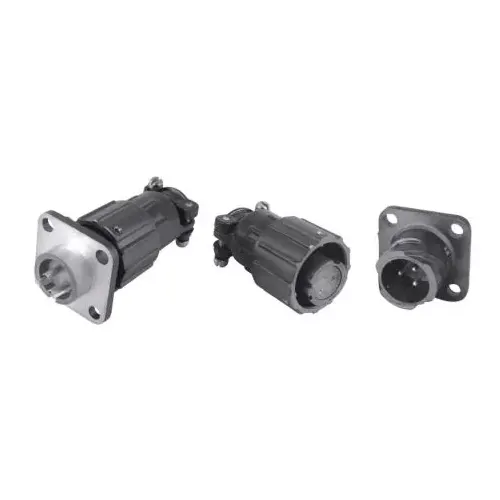Understanding Waterproof Connectors for Harsh Environments
2023-12-11
Waterproof connectors are crucial components in various industries, especially in applications exposed to harsh environments or conditions where protection against moisture, dust, chemicals, or extreme temperatures is essential. Here's an overview of waterproof connectors:

### Purpose of Waterproof Connectors:
1. Environmental Protection: They safeguard electrical connections from moisture, water, dirt, dust, and other contaminants, preventing corrosion and maintaining connection integrity.
2. Durability: Waterproof connectors are designed to withstand harsh conditions such as outdoor settings, marine environments, industrial facilities, and automotive applications.
### Features and Construction:
1. IP Rating: Waterproof connectors are often rated according to their level of protection. The IP (Ingress Protection) rating indicates their resistance to solids and liquids, with higher numbers denoting greater protection.
2. Materials: They are typically constructed from materials like plastic, rubber, or metal that offer resistance to corrosion and are suitable for the intended environment.
3. Sealing Methods: These connectors employ various sealing mechanisms such as gaskets, O-rings, or potting to create a watertight seal between mated connectors.
4. Locking Mechanisms: Some connectors feature secure locking mechanisms that prevent accidental disconnection and maintain a tight seal under vibration or movement.
### Types of Waterproof Connectors:
1. Circular Connectors: Often used in industrial, military, and aerospace applications, these connectors have a circular shape and multiple contact points. They offer robustness and reliability in harsh conditions.
2. Rectangular Connectors: Suitable for applications requiring a high-density connection, these connectors provide a more compact and space-efficient design.
3. Molded Connectors: Featuring a one-piece design, molded connectors offer enhanced protection as they encapsulate the connection points entirely, making them highly resistant to environmental elements.
### Applications:
1. Automotive Industry: Used in vehicles for electrical connections that need protection against water, chemicals, and temperature fluctuations.
2. Marine and Aerospace: Vital in marine and aerospace industries where connectors must withstand saltwater, humidity, and extreme temperatures.
3. Industrial Settings: Employed in machinery, automation, and manufacturing processes to ensure reliable connections despite exposure to dust, oils, and moisture.
### Considerations for Selection:
1. IP Rating: Choose connectors with an appropriate IP rating based on the environmental conditions the connectors will face.
2. Compatibility: Ensure compatibility with existing equipment and the specific requirements of the application.
3. Reliability and Quality: Select connectors from reputable manufacturers known for producing high-quality, durable products.
Waterproof connectors play a pivotal role in ensuring the reliability and longevity of electrical connections in challenging environments. Understanding their features, types, and application-specific requirements is crucial for selecting the right connectors to meet the needs of various industries and harsh operating conditions.


